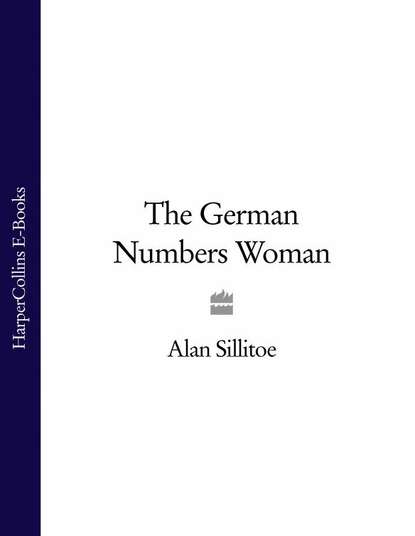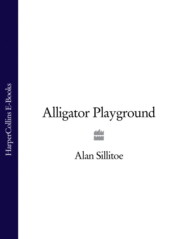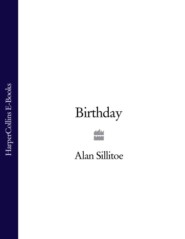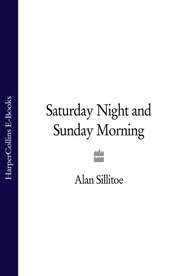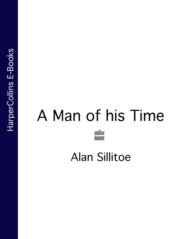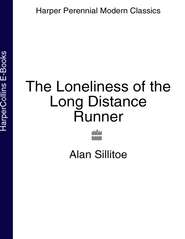По всем вопросам обращайтесь на: info@litportal.ru
(©) 2003-2024.
✖
The German Numbers Woman
Автор
Год написания книги
2018
Настройки чтения
Размер шрифта
Высота строк
Поля
THIRTY-SIX (#litres_trial_promo)
Alan Sillitoe (#litres_trial_promo)
By the Same Author (#litres_trial_promo)
Copyright (#litres_trial_promo)
About the Publisher (#litres_trial_promo)
Part One Observations from the Heaviside Layer (#ulink_c52781e7-bdd3-56be-b003-172b6bcef0e5)
ONE (#ulink_372424a3-27c4-5db5-a83e-48e44231f560)
Gulls skirmished the sloping roofs and chimney pots, squabbled and reconnoitred, a noise like nothing on earth, or in heaven either. They’d been fractiously squealing before his birth, and would do so for ever after, Howard grinning that even the rank breath of Chernobyl hadn’t pulled the buggers down. Such sounds lifted the heart whenever he came out of doors, though sometimes they were heard inside as well.
He paused, envying their freedom – what luck! what style! – head back as if to find the cause of such worried belligerence. Disputing for air at the ends of their wing tips, they mistrusted each other with almost human cries, while performing exquisite aerobatics.
He closed the garden gate before going downhill, aware of how many paces were needed between each step, arcing the white stick before him. The news had said it was 15 August. They always told you the date, an item worth knowing because it meant that although there was one day less to live a new one had even so arrived, and as long as that process went on he would see no reason for complaint: To be halfway happy was to be among the happy of the world.
Someone coming up edged aside to let him freeway by. A woman, because of the perfume. She was youngish, but her breath was hard at the ascent, and two plastic bags of shopping rustled against her legs, someone who didn’t know him, and too puffed on her short cut over the hill to say a word.
Pottering his slow way down, the tall greystoned houses made gaps to let the wind through. His cheeks were wind vanes, he a perambulating anomemeter – a long-remembered word which caused a smile. It always did. He used it every day on his way into town, carefully noting the serpentine route towards the beach.
No need to beware of traffic, since only pedestrians came up and down. The breeze touching his cheeks was southwesterly, to a degree or so, and more than welcome for its balm. Such days couldn’t come too often, but they soon enough wouldn’t until next year. He’d expected tonic weather but had cheated a bit on the wind, having taken all details yesterday on his typewriter, straight from Portishead, words tinkling through at top strength on the new radio Laura had bought when her National Savings Certificates fell due.
‘Morning, Howard.’
That’s me, but no need to stop. ‘Morning, Arthur. Your bag’s heavy today.’
A laugh. ‘Not for long. Nothing for you, though.’
‘I can live without it,’ which, sounding harsh, called for another word or two: ‘It’s welcome when it drops onto the mat, except for the bills.’
Arthur opened a gate, the latch stiff from corrosion. ‘They all say that.’
No mail was good mail, as far as Howard was concerned, and he could take whatever news he wanted from the wireless, though even that was a case of here today and stale tomorrow. A man went by, in a hurry to go down, giving a whiff of sweat. Off to cash his giro, so he would be slower on the way up, especially with a pint or two inside him. That’s how a lot live these days, too many in a town like this, though there’s work in summer when the holidays get going.
Good when the sky and your wife look kindly on you, allied to sunshine which gave zest. Laura liked to read his weather printouts, never ceasing to wonder at his ability. Magic, he told her, to keep the priceless spirit going. And magic it was that bound them after so many years, for what man would grumble against Fate when someone like Laura had taken over his existence, and he’d let her do so because there had been no option?
The massive presence of the church was felt to the left, a bulwark flanking his darkness, the picture accurately grey. A door opened, and someone passed in, as Laura now and again did for Evensong on Sunday. She needed such musical platitudes to reassure and warm her soul, a satisfying dimension beyond dull life in the house, and continually looking after him. Last time in such a place was on church parade the day before his crash landing, and he’d felt no pull to go into one since.
The small Peugeot was parked at the bottom of the steps, and he touched the wing mirror, stooped at the door hinge and imagined he caught a whiff of Laura’s hair. Damned sure he did, on straightening his back and walking with more vigour.
He yearned to spring along with speed, swing his stick and cry them out of the way, but knew he couldn’t, must not, too many excursionist bodies dogging the way. All the same, nothing gives a straighter back than misfortune. The one-way High Street was all obstacles and pitfalls, so concentrate on the map o’ the mind and keep the dopplers going. Swing the direction-finding stick along the shop fronts, with smells of meat, bread, furniture, maggots and fishing tackle, hoping not to put his boots in any dogshit, such peril the shame and bane of his life, because Laura (forgive me, Lord, for I can’t know what I do) had to make good. Rare was the day in this dog-loving town when he didn’t feel that sinking and sliding sensation underfoot, and know she would have the job of wiping the mess away with newspaper, and scrubbing out the stink with Dettol. Sometimes on fine days he would sit in the garden and call for the cleaning kit to do it himself, before coming into the house.
Thinking on better things than churches and dogshit now that he was in traffic, he let the stick go in front, a left and right weave, rhythming a morse letter on the ground, tap-tap-tap-tapping at the kerb, a regular Gene Kelly but never, he hoped, an SOS. All the same, cars go too fast, often not stopping at [Hore] Belisha’s beacons. A shade of warmth from the sun, he unbuttoned his jacket, brown she had said though he knew already by the pockets, and a neat diamond darn after catching it on a twig while digging in the garden.
He laughed inwardly at life’s challenges. That lorry ought to get its carburettor seen to. The escarpment into the gutter was measured by his stick, a precipice out of The Lost World. Or he was a land surveyor in Lilliput, but it was there right enough, and he could only wait.
‘Come on, I’ll see you across.’ A stranger from the world of the seeing usually helped, but now and again he relished the life-and-death gamble of doing it alone, a trip as lethal as that last raid over Germany, should a rogue vehicle strike. He would count steps to the middle of the motor torrent and stand a few seconds testing his luck, or as if to get breath (hating people to think he was afraid, or didn’t know where he was going) but really to taunt God or Fate, and find out whether his number was on a ferocious little ginger-pink hatchback given by a thirteen-year-old who had just stolen it – though by that time the colour wouldn’t matter – swivelling like Ben Hur from the sea front and going mindlessly inland. In which case someone would pull the card from his inside pocket, find the home number inscribed by Laura, and phone for her to collect his remains in the biggest plastic bag she could sort out from under the stairs. Macabre, but tempting to think about in such a dull life. They had always brought their thoughts into the open, though this picture was a fantasy to be kept on the secret list.
‘That’s kind of you.’
She held his arm. ‘You’ll be safe with me.’
‘I’m sure I shall.’ Mostly women did this sort of thing, and he wondered what he would do if – on reaching the side closer to the sea and, talking in her angel’s voice, the small warm hand still firmly in his – she led him along meandering flower paths to a paradise only she knew about, to an utterly different life wherein he would be able to see.
No matter how well arranged a man’s existence he still must dream, secret dreams and unexpressed thoughts forming the necessary backbone for survival in a sometimes meaningless world. Noise hit the senses like blades as cars came and went. ‘You’re being very kind,’ he said to her.
‘I like to help. I would want to be, if I was like you, wouldn’t I?’
‘I hope you never are,’ he smiled.
‘Yes, but you don’t know, do you?’
‘I don’t think you do. What’s your name?’
‘Janet.’
He almost smelt the fact when people were embarrassed at doing a good deed, not seeing why they should be. Sensibility to another’s needs had many reasons, one being guilt at knowing they were so much better off – as indeed they were. Or did they sense his extra power because he had adapted to living in darkness? Inner light at least was more vivid, though power beyond his understanding wasn’t always what he wanted, and he would willingly have traded it for an occasional glimpse of street or seashore. Maybe people thought he had an ideal life in that his affliction would allow no other cares to gall him but, whatever mixture of guilt, fear or envy it might be, how could such deadly sins matter if a kindly action resulted?
She released her hand. ‘Will you be all right?’
‘You’ve been very kind.’ To sit over a cup of coffee with her would make a memorable day. ‘Off to do your shopping are you, Janet?’
‘No, I’m going to meet my boyfriend. He works in the arcades, mending the machines.’
‘Thank you, then, and I hope you have a nice day’ – for putting such notions into my head, though better not think so much, unless I want to get run over. Her light and quick footsteps were lost among others, crowding into the High Street, holidaymakers, mostly, out from boarding houses and hotels, or walking down from the station.
A poor kid got smacked for craving an ice-cream. There was a double stretch to cross where two streets merged. A dog barked, at what he would never know, but its throat grated, so it was on a lead, giving a shriek of despair at some minor loss, dragged from a rancid smell perhaps, or begrudged a tailwag with a possible companion. He stood, and laughed, dryly and alone, in tune with the animal’s moans of commiseration as it passed the pet shop.
The studs of the crossing made a wide enough runway, and the baker’s smell on the other side was a beam to draw him over. Ten times more traffic than forty years ago. A car stopped at seeing him, a big one this, station wagon maybe, certainly not a Mini. Here goes, and he went, a lift of his stick to the motorist, who pipped his horn – a vocal handshake. Another car stopped, this time small, all considerations shown, though he was glad to tap the lip of the kerb: the one-engined blind old kite had landed, the beam approach of studs and smell had worked, flying control had rolled out its expertise, just how he liked it.
Ozone caressed his nostrils from the one unmistakable direction, an endless horizon of green and blue, duck-egg blue maybe, a touch of turquoise, and the odd high cumulus above the line. A sail now and again might speck the water, anything from white to orange, though the fishing boats were already long back from their night’s work. He could smell that, too, another odour of eternal life, healthy as well, as he crunched over shingle and picked up the tang of tar from the tall huts called tackle boxes in which nets were hung to dry.
So it was easy, as always, to know where he was among the radar of aromas, familiar from years of living in the same place, gratifying that in nil visibility he could make his way at a sure pace to where he wanted to go. From rightwards came the shrill calls of children living out their lives on the boating lake and in the paddling pool, and the muted clank of the miniature railway making its slow way up and down, all sounds providing cross bearings to his navigation system, perfect cocked hats to fix his location from the constant rush of traffic behind.
At this point, between the huts and the broken concrete pier, he always thought of when Laura had led him here for the first time. Every day it came to him, as if there had been little progress in their lives since. Hands firmly held, he had smelled the tears before they came to her eyes, on him remarking that he could taste the salt water turning into spray from the sullen waves falling line by line onto the stones. A common observation, not one to make her cry, he would have thought, but she hurried him back up to the house, as if she found it too painful to be seen walking out with him, husband and wife at twenty-two, not a word from her on the ascent. Halfway, he assumed it was because of the summer rain that fell in plates and drenched them after a few yards.
Once in the door she put his stick away. He saw her as the young girl she was, how she threw the stick rather, though in those days people weren’t counted as young at such an age. The stick flew at the wall and bounced. She took off his saturated jacket and waistcoat, and sat him down, breathless from the climb though he was not, but he felt a light before his eyes as if about to get his sight back. She played Elgar’s Enigma Variations on the radiogram. He’d often told her how much he liked it, so she’d gone out the day before to get the records for his birthday, not for another month.
He heard the angry crash of the curtains sliding to, then – silence but for the duet of their breathing. She put on one of the records to hide whatever devastating emotion still blighted from the beach. ‘This is for you, darling’ pulling him roughly to his feet. ‘Only for you.’ Salt tears again, as they listened and held each other, mixing with his to run down both faces, an amalgam of happiness as much as despair for a plight that would lock more firmly than any marriage.
He couldn’t talk, blocked at the throat, a dumb tongue adding to his blindness. She had brought the records as a surprise, and the colours of music flared and expanded across white space, lighting every dark corner, his heart buffeted by the sweet strong music. Neither could she talk, didn’t want to, pulled and pushed, kisses of possessive disregard for that one time which her love had to go through, noises meeting with his, no words possible, a dull erotic burning conquering them both, taking them away from house and seascape and the downs behind. Each other’s clothes were clawed off, too hot in their passion to wait, that must have been it, they fell onto the carpet wailing and lost in a maelstrom of despair and pleasure that even now they hadn’t fully learned to separate, while knowing they had been made for each other even before birth.
More than thirty years ago. Kids, they might be called. He tapped a bigger stone than most, pushed a hump of seawrack out of the way. That’s what we were, yet it was all so dammed lucid still, and why did it come back every time he stood on this spot, the anchor stone of his life, and hers as well? Little more than twenty, how grown up we felt, and were, as if we’d lived a whole life already; and had, because there’d been no more since, not knowing we were set for an eternity of same days.
A gull came close, painted him with a rush of air from wing tips, slicing away the mark of Cain perhaps, or to stick two good eyes back beneath his lids as a gift from the gods, though even one would do. He envied Polyphemus at times and, hearing Laura’s divine and measured voice as evening by evening she read through the Odyssey from the other side of the fireplace, cursed the brutal Odysseus for taking a burning fire brand to gouge out that one sensitive solitary eye, while supposing he would have done the same to save his friends.





